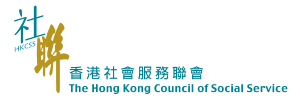Tools on NGO Governance
Over the year, the NGO Governance Platform Project has co-operated with different partners to develop four sets of guides / toolkits on various aspects of NGO governance. These reference materials are in both English and Chinese. NGOs can make use of the guides to review and develop their own policies. Below are brief introductions of the guides: A Concise Guide on NGO Reserves & A Concise Guide on NGO Investment These two guides are developed with the advice of the Expert Group formed under the NGO Governance Platform Project. The guides respectively describe the principles in handling NGOs' reserves and investment, and provide templates and related materials for readers’ reference. Internal Control Toolkit for Small Non-Governmental Organizations This toolkit is a collaboration between EY and the Council, providing a framework on internal controls for small NGOs. It focuses on supporting the development and review of existing practices. Personal Data Privacy Toolkit for NGOs This toolkit, compiled and published by PwC Hong Kong, aims at facilitating the understanding and compliance of the Personal Data (Privacy) Ordinance (Cap. 486). The toolkit highlights the six Data Protection Principles of the Ordinance ...
ICAC’s Best Practice Checklist
A series of Best Practice Checklist published by the Independent Commission Against Corruption have been uploaded to the Project website for reference of interested parties. Integrity and Corruption Prevention Guide on Managing Relationship with Public Servants Quick Starter to Integrity and Corruption Prevention Guide on Managing Relationship with Public Servants Management of Donations for Naming Rights Staff Administration ...
編寫香港非政府機構管治手冊指南
An NGO should own a set of governing documents, including a governance manual, to file its governance processes and practices. In times of transition of board members or senior management, these documents keep the basis of the NGO’s governance stable and provide a quick overview on its governance to newly joined board members or staff. To provide support to NGOs in this area, PILnet facilitated the collaboration between HKCSS and Mayer Brown to develop the “Guidelines on how to develop a corporate governance manual for Hong Kong NGOs”. This document introduced the suggested framework of an NGO’s governance manual and the requirements and standards in compiling each section. NGOs can make reference to this guide when developing their own governance manual. Click to View ...
家長教育資料
社福界一直推動家長教育,會舉辦不同類型及主題的家長教育活動。為讓公眾認識更多不同社會服務機構所舉辦的家長教育活動,香港社會服務聯會收集了部分機構有關資料。相關資料以全港18個行政區劃分,請按相關區域下載有關資料,如想了解更多舉辦家長教育活動的詳情,請聯絡相關機構。 如機構想更新服務資料,請以電郵︰[email protected] 聯絡同事跟進,謝謝﹗ 中西區 東區 南區 灣仔區 深水埗區 九龍城區 觀塘區 黃大仙區 油尖旺區 離島區 葵青區 北區 西貢區 沙田區 大埔區 荃灣區 屯門區 元朗區 ...
Senior Citizen’s Day (Chinese only)
2019年『長者日』(11月17日)星期日 按此參閱詳情 長者日之源起 自一九七九年開始,為了推動敬老愛老的精神及促進社會人士關懷長者的需要,香港社會服務聯會與各安老服務機構於每年十一月第三個星期日舉辦「老人節」,並按每年主題籌辦多項慶祝活動。 至一九九三年,政府確定了「老人節」的重要性,將「老人節」重新定名為「長者日」,藉以宣揚長者對社會的貢獻,並提倡積極晚年、老年所為等訊息,以洗脫長者的負面形象。 長者日更以金百合作為象徵,意思是燦爛、豐盛、知足、感恩,這正意味著長者仍可以繼續積極參與社會、貢獻社會,更重要的是長者晚年生活是可以多姿多采、非常豐盛的。 長者日歷年主題 七九至九三年(老人節) 九四年起(長者日) 二零一九 「全城護老」 二零一八 「全城護老」 二零一七 『長者友善社區 -- 發揮所長 -- 參與社區』 二零一六 『香港長者友善城市』 二零一五 『香港長者友善城市』 二零一四 「關懷長者消費處境」 二零一三 「關懷長者消費處境」 二零一二 香港第三齡學苑 知樂自得每一天 二零一一 「長者友善社區」 二零一零 「長者友善社區」 二零零九 「長者友善社區」 二零零八 長者日30周年紀念 - 推動「香港高齡化行動方向」,邀請加入敬愛和關顧長者行列 二零零七 「至叻長一代,攜手展關懷」 二零零六 宣揚敬愛、關懷長者訊息 二零零五 「敬愛長者,全城響應」 二零零四 長者參與 -- 「匯聚全民參與,共創積極晚年」 二零零三 長者參與 -- 「積極參與,躍動晚年」 二零零二 長者參與 二零零一 老當益壯樂頤年 一九九八至二零零零 長幼一家 一九九五至一九九七 老有所為 一九九二至一九九四 老人權益共籌謀、耆英生活樂優悠 一九八九至一九九一 萬家齊敬老、點滴聚關懷 一九八八 工商攜手齊敬老 一九八七 家居護老 一九八六 和諧晚年 一九八五 積極老年 一九八四 促進老人與家人和睦相處 一九八三 參與社會、助己助人 一九八二 豐盛老年 一九八一 健康老年 一九八零 歡樂老年 一九七九 不單養老、更要愛老 ...
